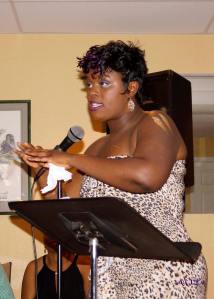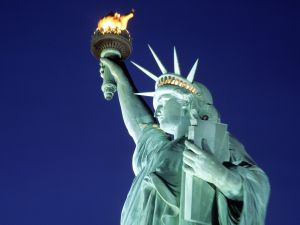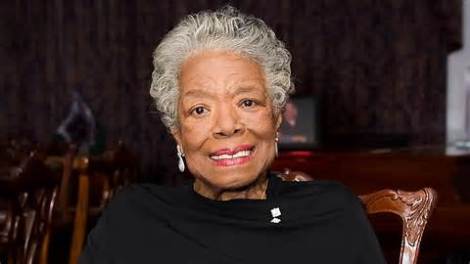For years I have been asked what motivated me to start writing. I have only been able to give part of the truth when I told people that I used writing to help me cope with issues. The other part, the most important part of this answer, has been an uncomfortable story to tell. I have hinted at the truth, only alluding to the answer because I was afraid to give full disclosure and worried about how the answer would reflect on me. This is not an easy explanation; it is the hardest story I have ever had to tell. However, what I experienced is all too common and not talked about enough.
I have never danced around the fact that I suffered from depression most of my teen, preteen years, and some of my early adult years. Unfortunately, the illness was pervasive in my household throughout my childhood. My mother was a serious sufferer of depression and I silently fell into the same pattern, as I struggled to understand what was wrong with our family and how I could solve the problem. In our apartment in the projects, there was a broken woman in a dark room on one side of the wall, a sad little girl crying everyday on the other side of the wall, and a boy I could not understand down the hall. This scene went on for years. In addition, self-esteem problems, the absence of my father, and poverty were all issues that I understood too well too young. Though I understood the issues, I did not understand why they were a part of my life or how to escape the problems associated with them and the emotions I experienced as a result.
My depression became even darker when I was about twelve years old. There are many things I cannot remember, but of those I can recall, I remember hating everything about myself and my life and believing that no one loved me, not even God. I believed that my dark brown skin was jet-black and ugly and that I was the sole source of problems in our home. I hated waking up in the morning; each day seemed to drag on and I could not see a reason for my existence. I began to pray for God to kill me in my sleep at night. I had convinced myself that no one would miss me if I was gone, not even my family, who was doing the best they could to help our family while trying not to upset our situation even more. I thought that if I died in my sleep it would be quick and painless. I was convinced that death would be my only peace, but a few more years would pass before I would actually get the courage to consider killing myself. Yet, when the moment arrived, I stood in the kitchen with the lights off and a knife to my wrist. I had never felt more desperate and ready. With tears running down my face, I stood ready to relieve myself of all pain. As I stood in the kitchen, I prayed one last desperate prayer, If you will give me one reason to live, just one God, I won’t do this. But I just cannot take it anymore. It was the last prayer I felt I had the energy to pray, and I had given up on God. I had wondered why I had seen my mother pray so much, but it seemed that nothing about our lives had changed. I had witnessed her praying through the crack of her door and reading her bible multiple times a day when I was child; yet, she was still so unhappy. I could not understand what prayer was supposed to do, but I knew it had to do something. I wondered why I felt the need to mimic her example, but still could not see the benefits of praying. Just as I finished my ultimate plea for a reason to save my own life, God spoke to me so clearly it was as if He was in the kitchen with me. He said three simple words, Write about it. It was such an unfamiliar experience and voice that I doubted myself when I first heard the words. He repeated, Jamie, write about it. It took me a minute to compose myself, but I dried my face, put the knife in the sink and went to my bedroom. I found my school notebook and starting writing words on paper.
I began writing paragraphs about my feelings and the anger with my life and my situation. I wrote when I was happy, angry, frustrated and depressed. Some of my writings were dark and filled with rage, but the more I wrote the more I was able to release the pain that I felt. I frequently heard God speaking to me as I wrote. Sometimes I wrote multiple times a day, and sometimes I would go days without writing. Yet, I knew that my pen was my savior and it was helping me to escape my pain. Though nothing was changing at home yet, things were changing within me. I started to feel hope and my motivation to become successful drove me to excel in everything I did. Mediocrity was never acceptable; my performance always had to be exceptional. I believed that my exceptional performance would help to change so many things about my life, and though I did not see much progress, writing continued to give me hope.
After my ninth grade year of high school Mrs. Sylvia Smith (formerly Hawkes) encouraged me to enter the public speaking contest at 4-H Short Course. Given my talkative history, she thought it would be the perfect competition for a girl in an agriculture club who could not have farm animals in the projects. I loved all famous black orators, and I secretly wanted to be like Dr. King one day, though I never thought it was truly possible. I thought the writing I had been doing for the past few years might help me write a speech for a contest. My paragraphs became poems, and my poems became my first essays. I became a competitive speaker who was more enthused by sharing a positive speech than by winning; though, I went on to win and place in most of my competitions. Speaking validated my calling to share hope with others.
The irony of my life was that most people never knew my living situation or that I lived every day for many years in depression. They had no idea that the outspoken honor student who was a member and leader in almost every school organization was smiling on the outside and praying for a reason to live inside. School gave me validation, and education gave me liberation. Seeing the success of others gave me hope on  the day that I almost gave in. I am thankful that God saved me and I am living in every single moment of this life. As I hold my son, I am reminded of why I am so blessed to see every day and I frequently think to myself that I almost missed this wonderful life. Each night when I talk to my mama, I am thankful that God created such a beautiful masterpiece out of the shattered vessels that we were. When I stand on stages and talk to audiences, I think about how I almost missed the chance to share such important moments with others. All of the pain I experienced equipped me to be as strong as I am today. All of the hurt I felt gave me the compassion that I share with others. All of the depression I experienced made me appreciate true joy. All of the brokenness in my home was to bring my family even closer together in God. My friends and family frequently make jokes about how much I cry when I get emotional, but when I think of all the years I spent crying tears of pain, I want to make up for them by crying tears of joy. I am not perfect, and neither is my life, but God’s will for my life is being perfected each day. I have been freed because God and poetry saved me from suicide.
the day that I almost gave in. I am thankful that God saved me and I am living in every single moment of this life. As I hold my son, I am reminded of why I am so blessed to see every day and I frequently think to myself that I almost missed this wonderful life. Each night when I talk to my mama, I am thankful that God created such a beautiful masterpiece out of the shattered vessels that we were. When I stand on stages and talk to audiences, I think about how I almost missed the chance to share such important moments with others. All of the pain I experienced equipped me to be as strong as I am today. All of the hurt I felt gave me the compassion that I share with others. All of the depression I experienced made me appreciate true joy. All of the brokenness in my home was to bring my family even closer together in God. My friends and family frequently make jokes about how much I cry when I get emotional, but when I think of all the years I spent crying tears of pain, I want to make up for them by crying tears of joy. I am not perfect, and neither is my life, but God’s will for my life is being perfected each day. I have been freed because God and poetry saved me from suicide.



